By Kevin M. Hymel
Every man in uniform dreamed of taking that big boat home, but stepping foot on American soil was just part of the journey. For every soldier, sailor, airman, and marine who arrived back in the United States to be honorably discharged, the system was the same. Fortunately, the government established a process to prepare veterans, as best it could, to return to civilian life.
To earn a ticket home, a soldier needed 85 points in the Army’s adjusted service rating system. Soldiers received one point for each month on active duty, five points for each medal they earned, and 12 points for each of their children under the age of 18. Naturally, the most experienced veterans returned home first, leaving those with fewer points to wait their turn. The point system became the hot topic among GIs overseas as they used C-ration boxes, or anything else they could write on, to tally their points.
Staff Sergeant George Faulkner of Company B, 422nd Infantry Regiment, 106th Infantry Division, with 86 points, was picked randomly to represent the average GI going through the discharge process, and Army cameras followed him through the entire experience.
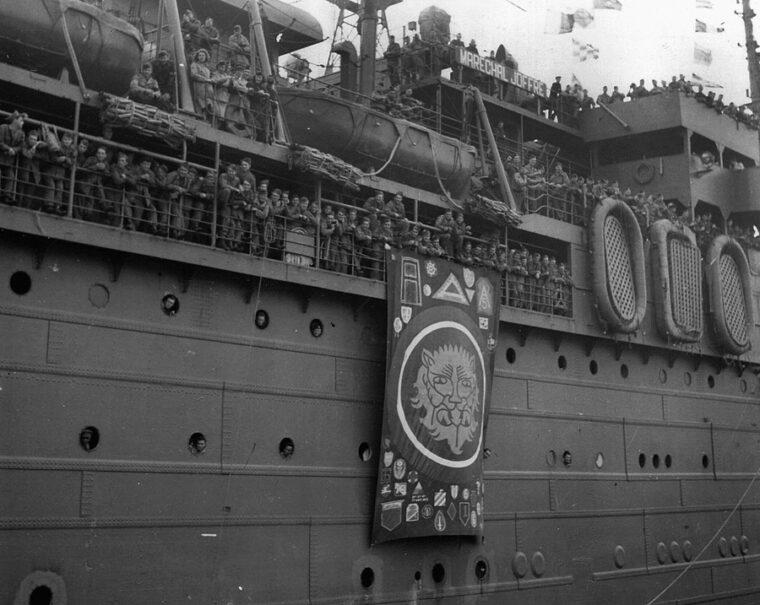
“Who Would Have Thought That I Had Put on That Much Weight in the Army?”
Upon his arrival in New York City, Faulkner’s troopship was met by a welcoming ship, complete with a Women’s Auxiliary band on board, playing patriotic songs. He and other veterans then disembarked from their ship and went to a staging area at Camp Shanks. There, Faulkner turned in his uniform for a new one and gave back any items due Uncle Sam. With that accomplished, Faulkner and his fellow vets attended an orientation lecture to explain the process they were about to go through. After that, they were given a steak meal. Veterans spent an average of three days at the staging area while their papers were processed. They were then sent off individually to separation centers near their hometowns.
Faulkner was sent to Fort Devens, close to his home in Attleboro, Massachusetts. There, he signed his discharge papers, officially returning to civilian life. He was also given a good conduct medal for being a “good soldier” for a period of 12 months and a “Ruptured Duck,” a medal or patch issued to all honorably discharged veterans. Veterans wore the new insignias, which bore the image of an eagle, on their lapel or had them sewn on their right chest pockets.
Faulkner was also issued his final Army pay, plus a mustering out pay. With that he was free to leave. New civilian George Faulkner’s first order of business was to call home and tell his parents he was coming. Upon his arrival in Attleboro, they greeted him at the door, in more a family reunion atmosphere than a hero’s welcome. His first realization that he was actually home and that he had been away so long occurred when he stripped off his uniform and tried to put on his old clothes.
He commented, “Who would have thought that I had put on that much weight in the Army?” Mr. Faulkner, who helped free the world from tyranny, was now himself free of reveille, cold showers, and combat. As far as the army was concerned, he was ready to get on with his life.
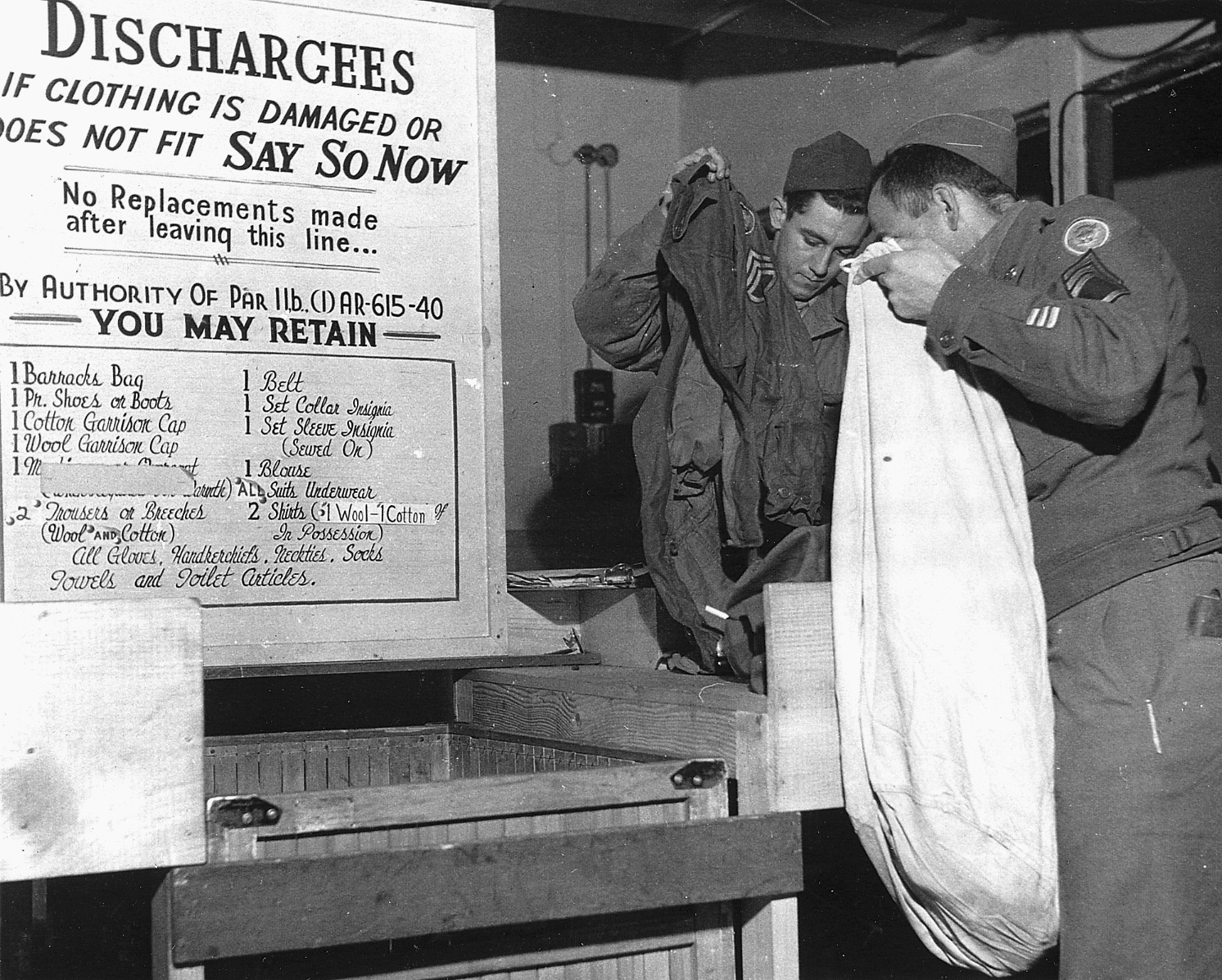
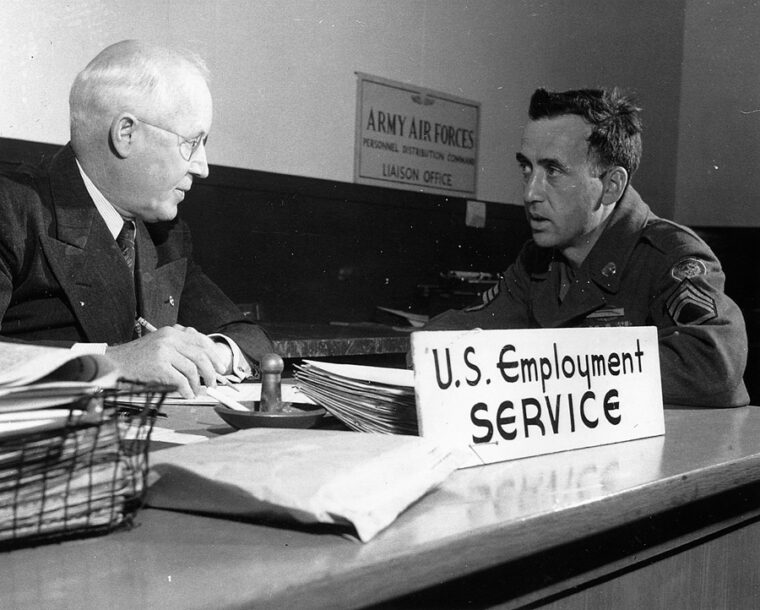
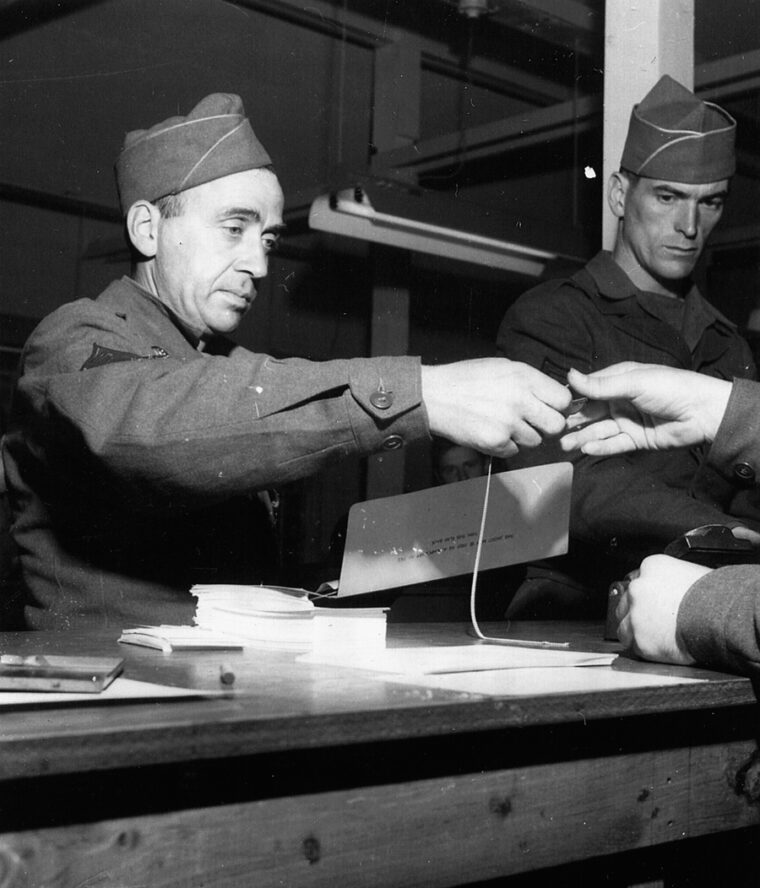
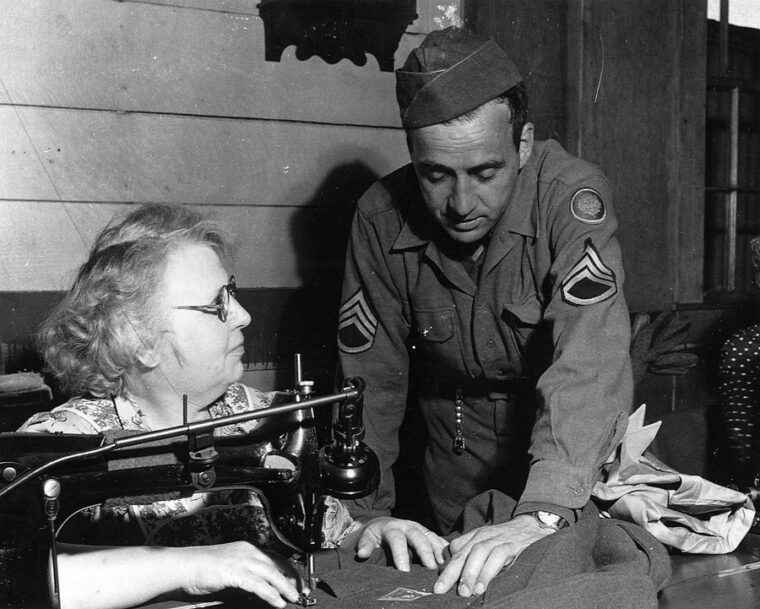
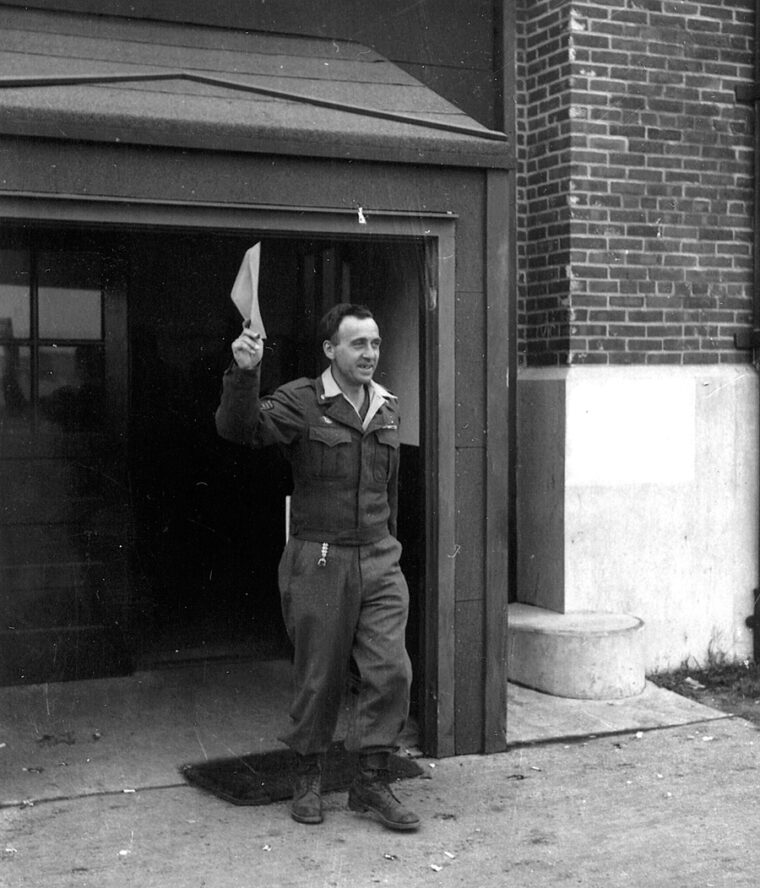
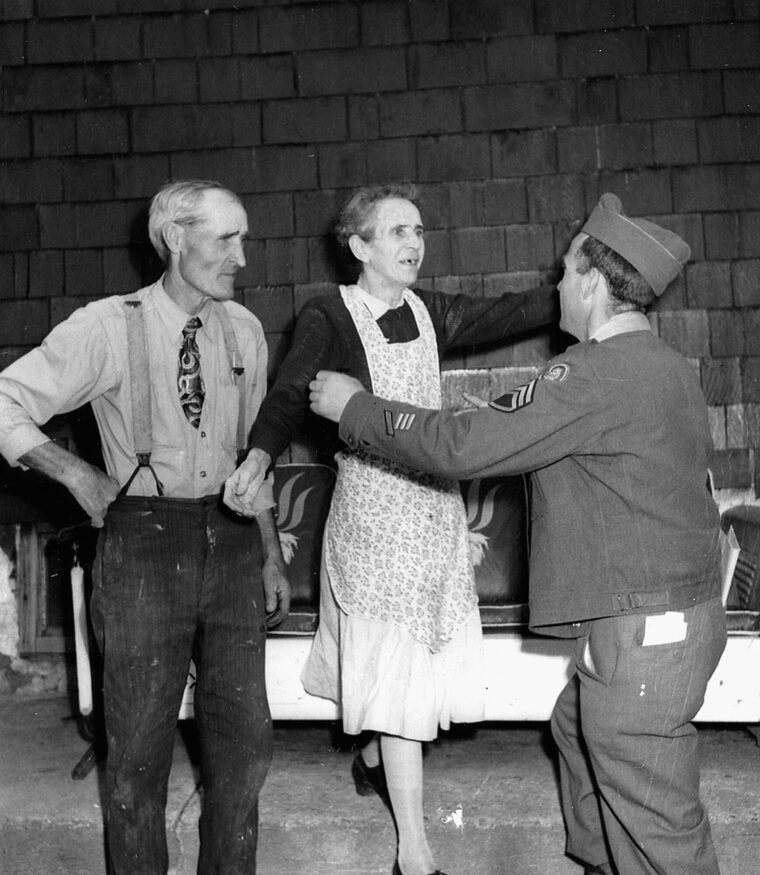
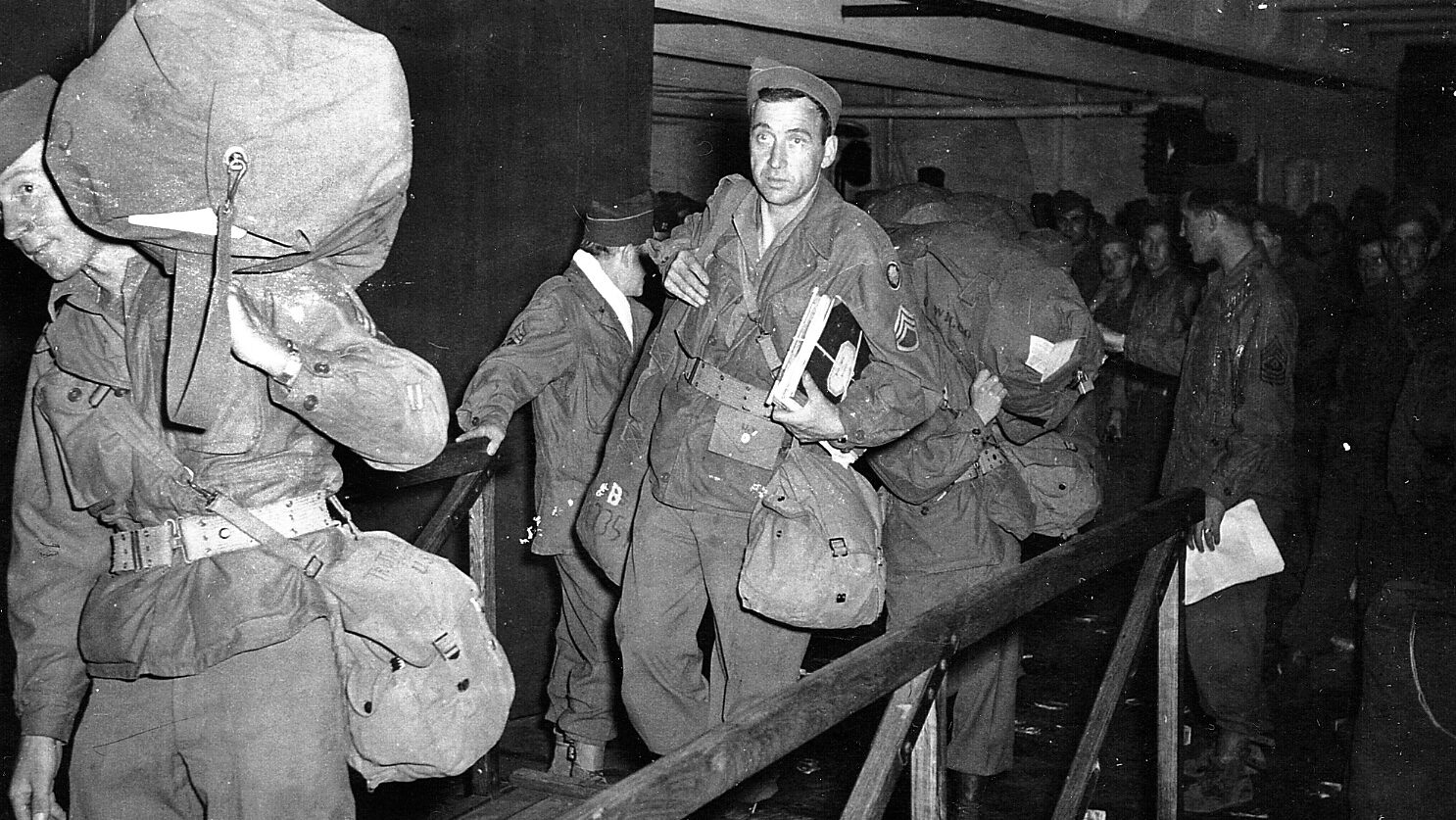
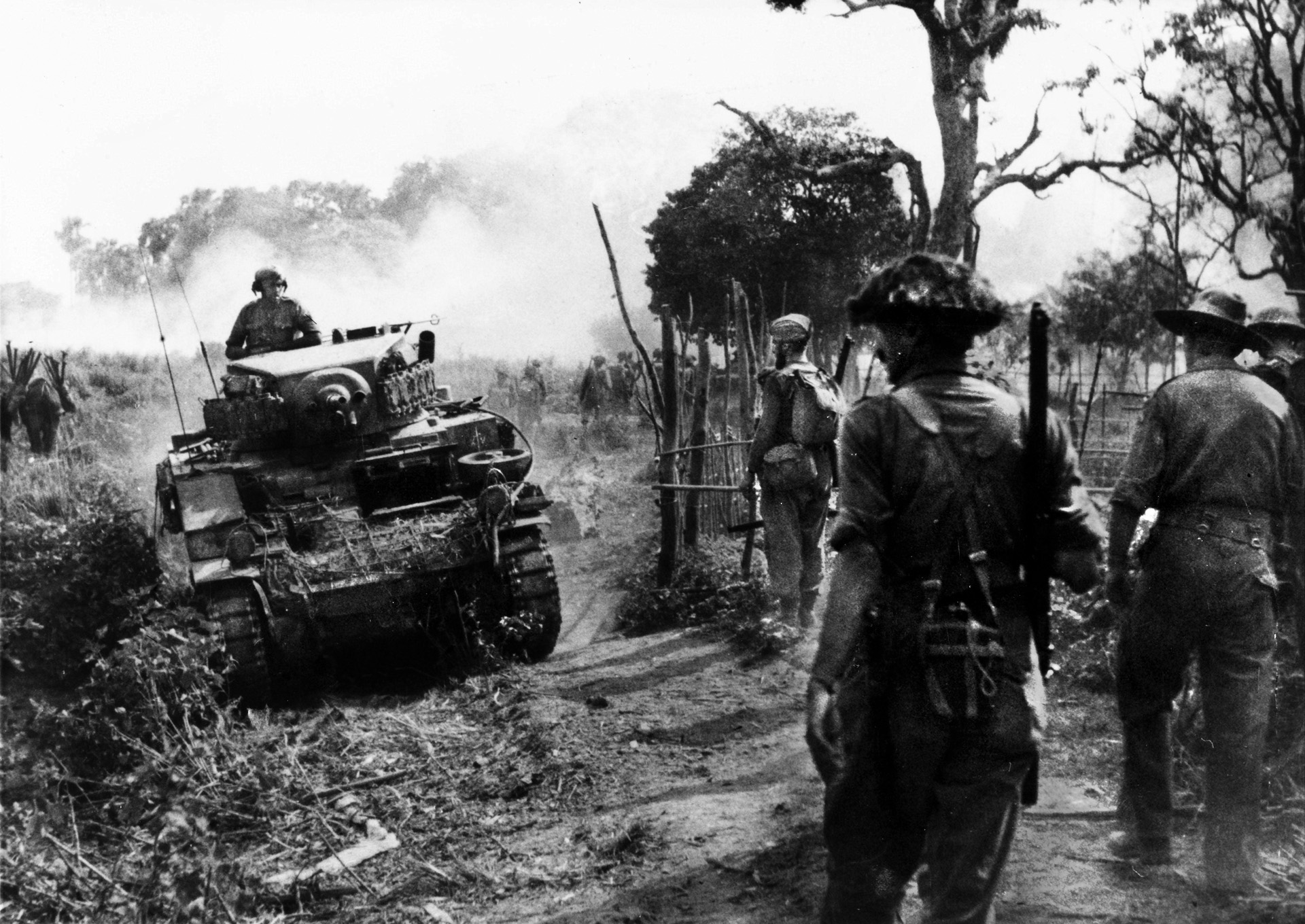
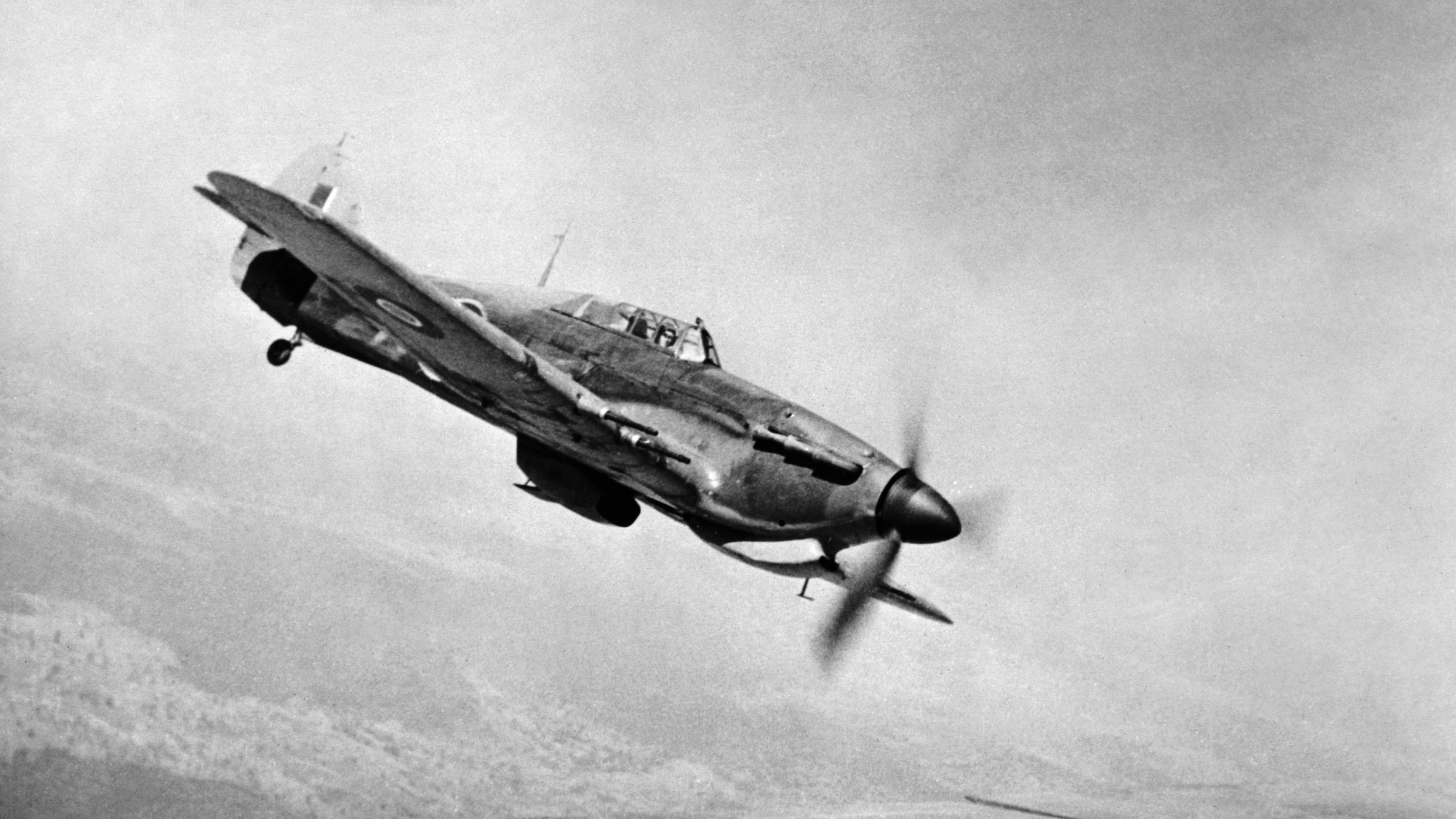
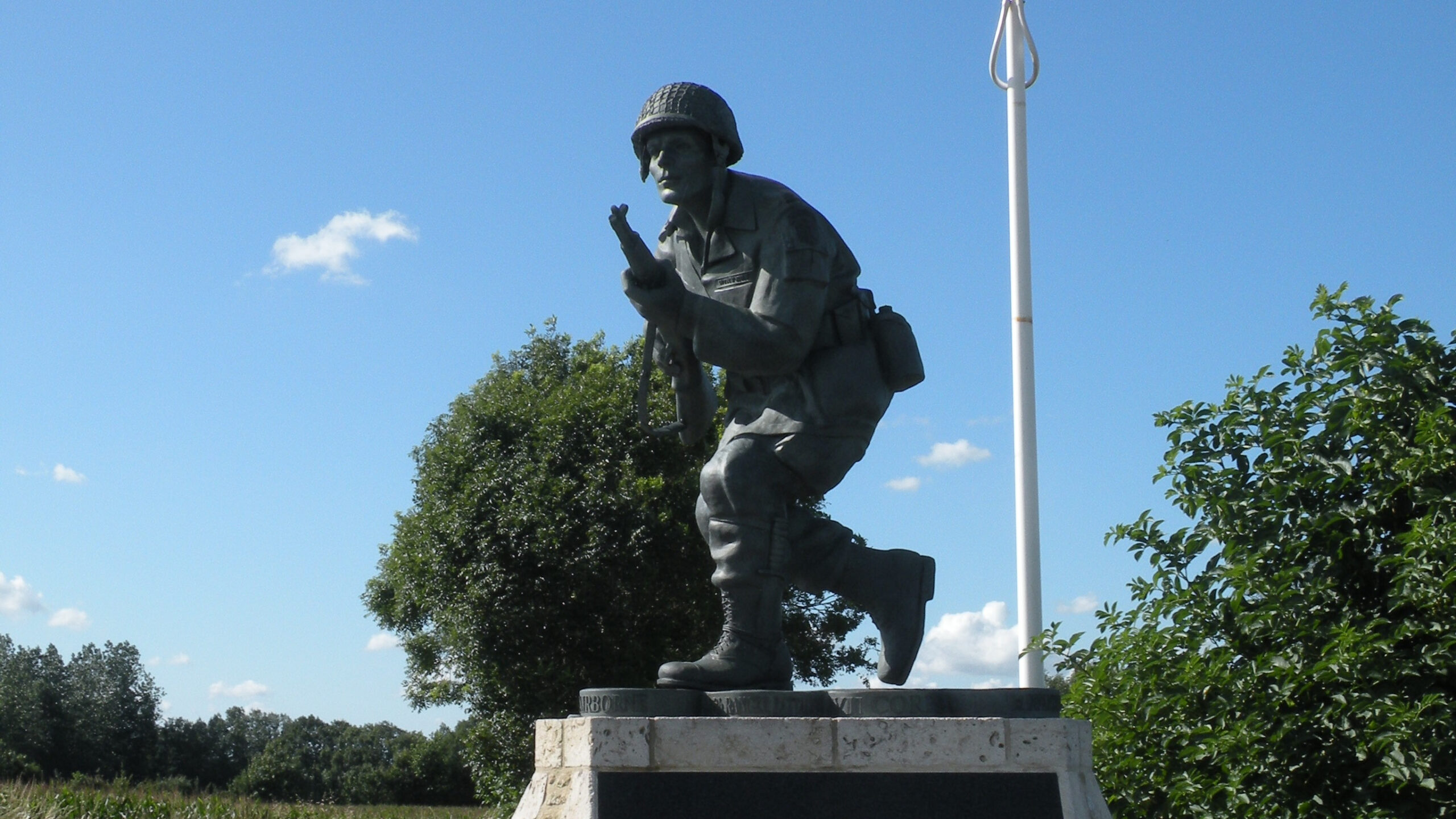
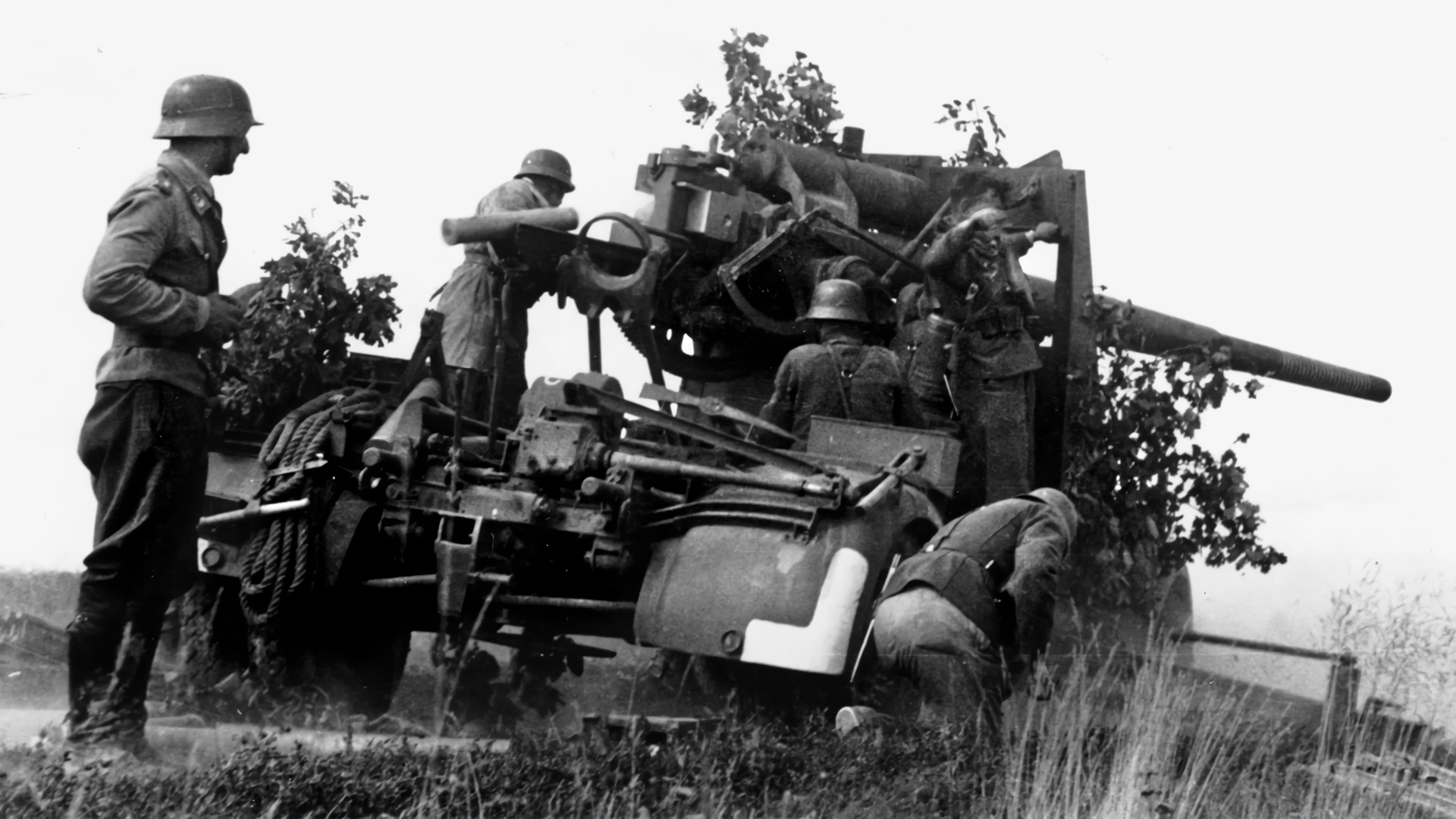
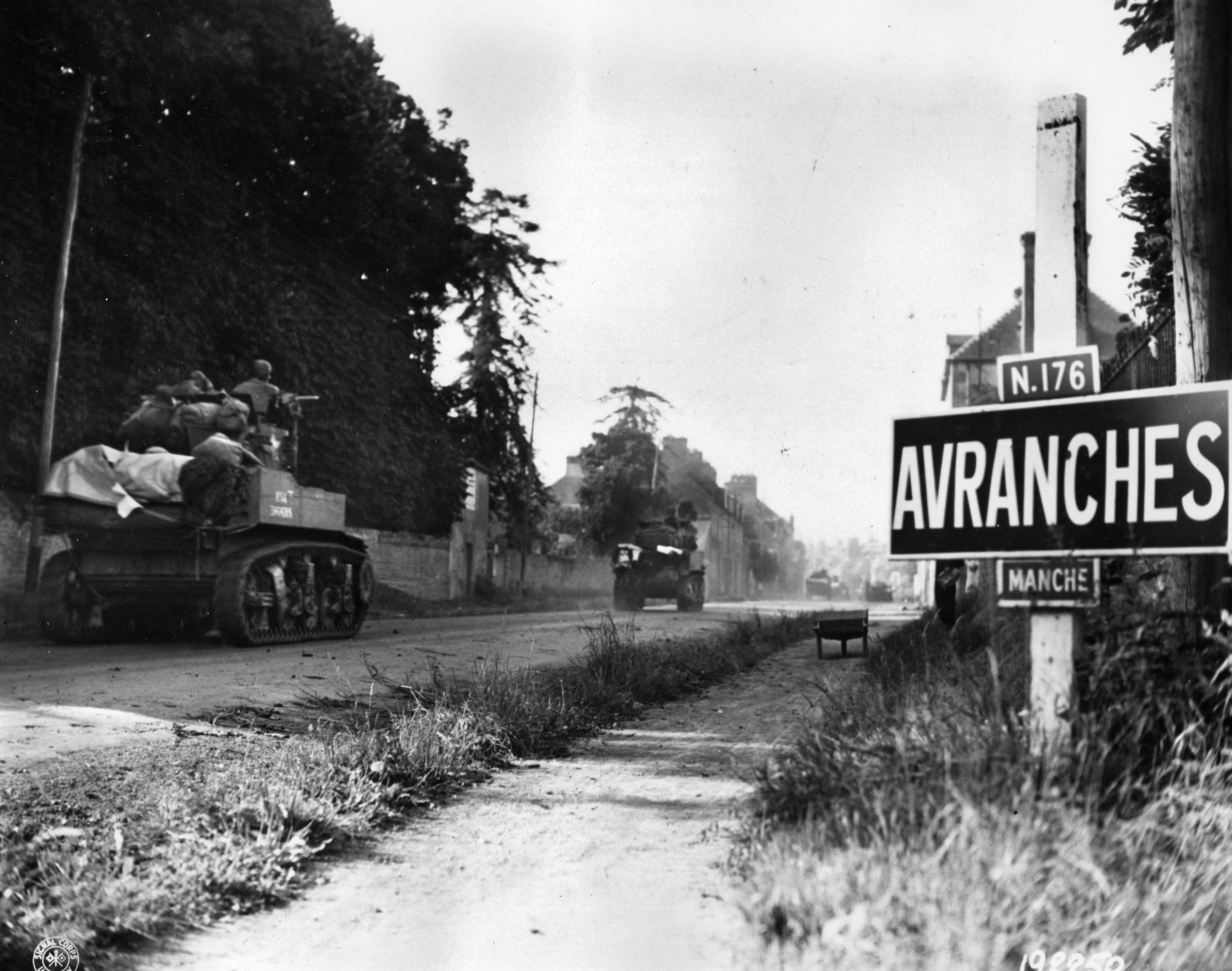
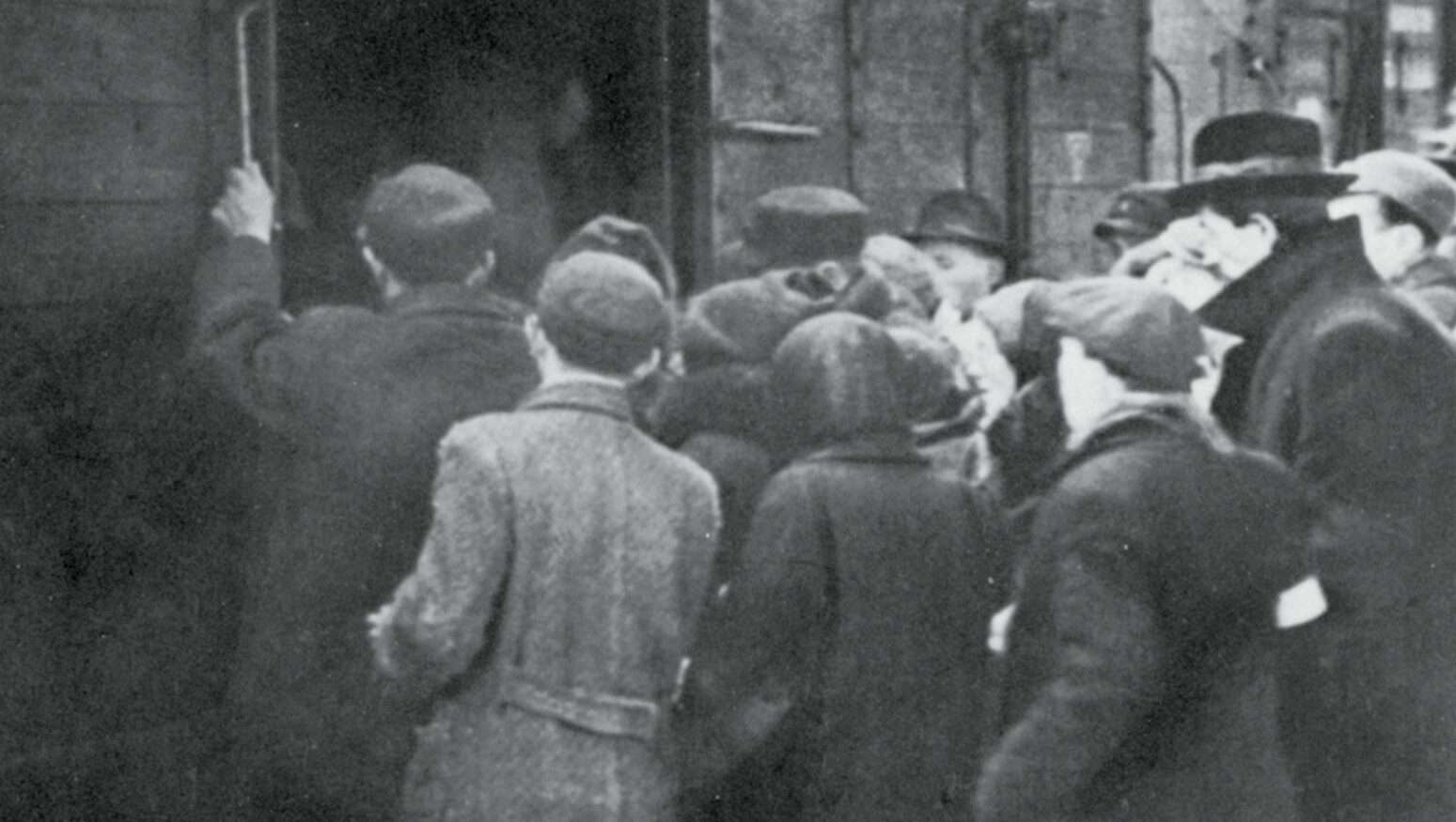
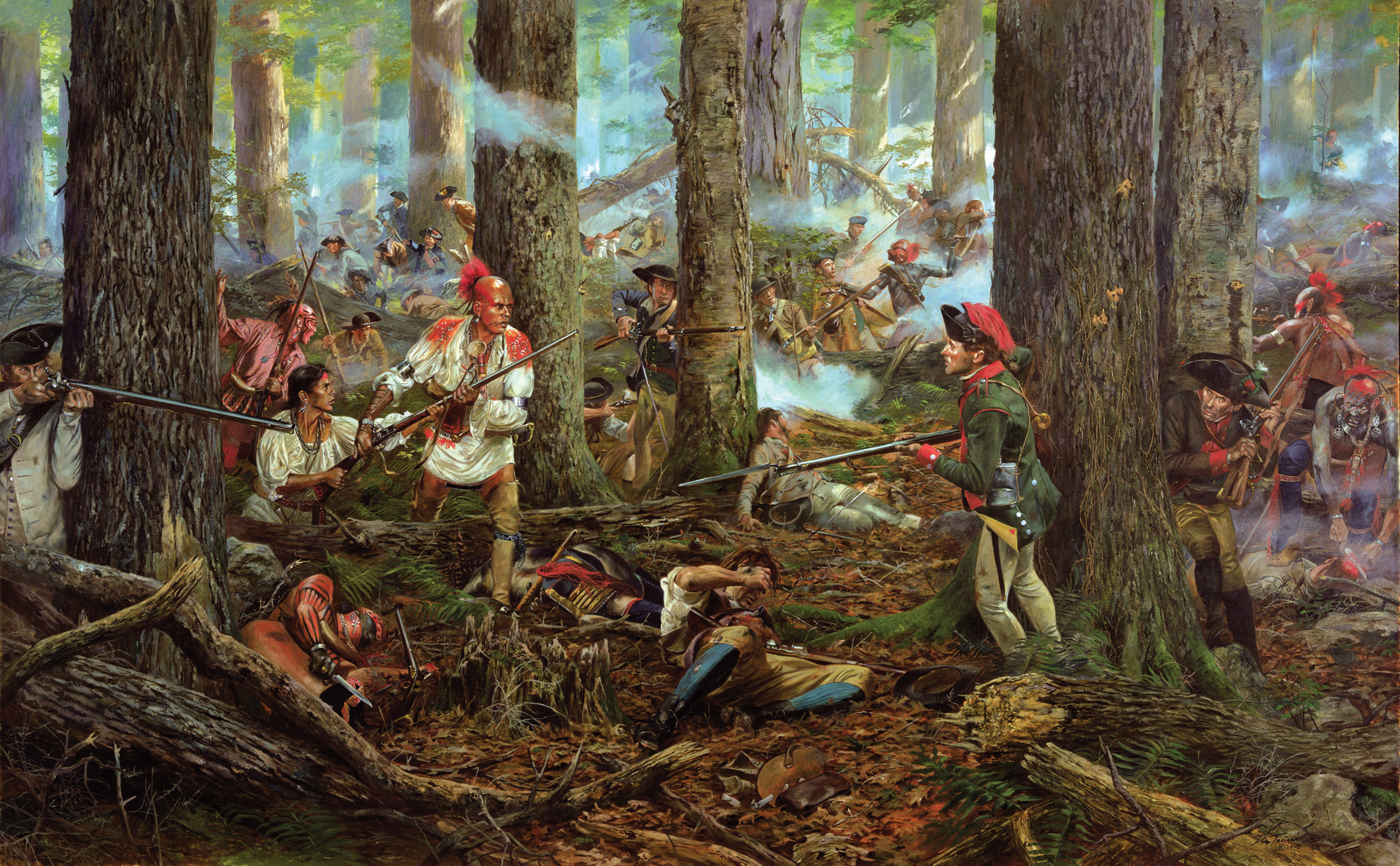
Join The Conversation
Comments
View All Comments